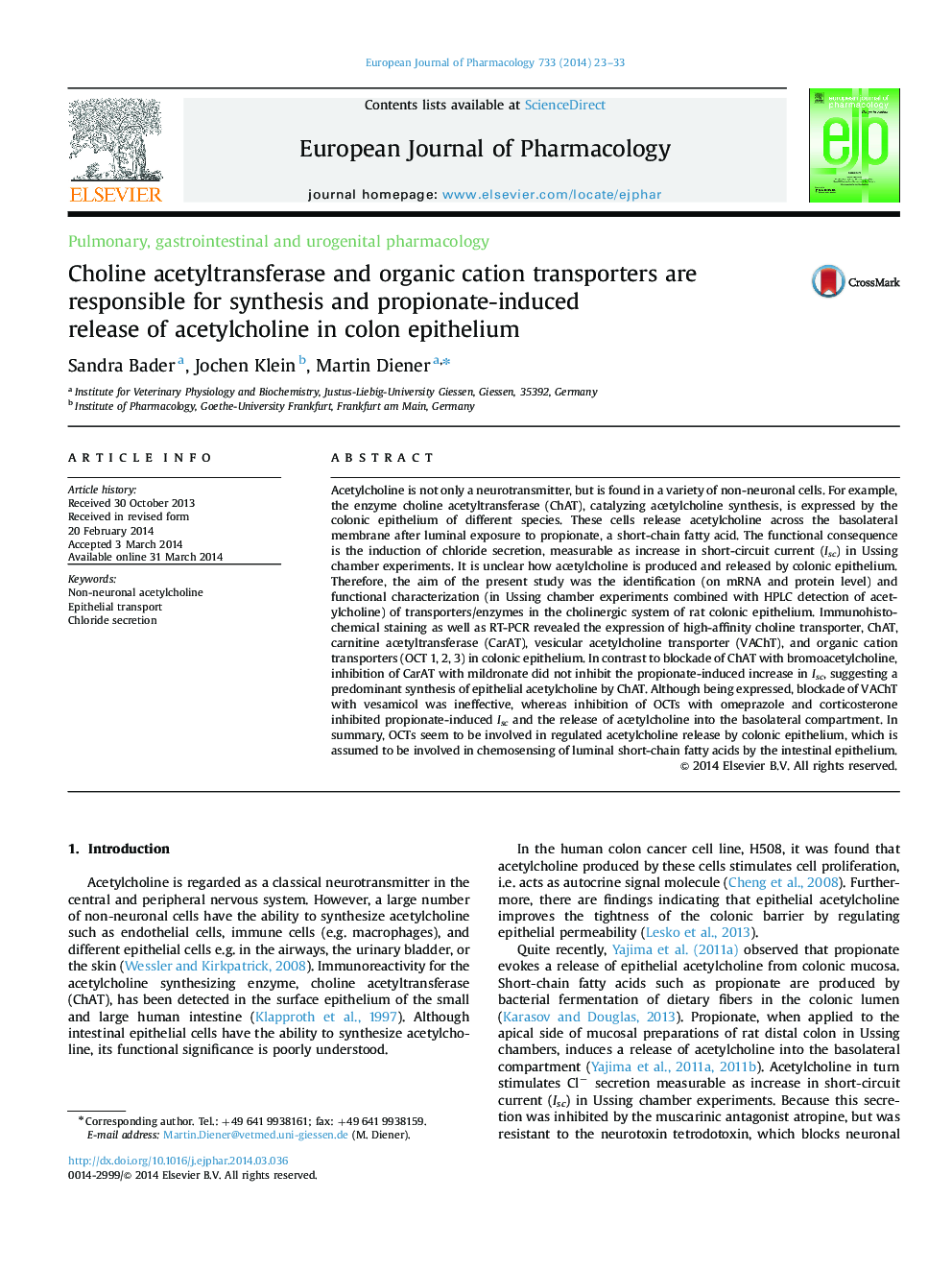| کد مقاله | کد نشریه | سال انتشار | مقاله انگلیسی | نسخه تمام متن |
|---|---|---|---|---|
| 5828047 | 1558948 | 2014 | 11 صفحه PDF | دانلود رایگان |
Acetylcholine is not only a neurotransmitter, but is found in a variety of non-neuronal cells. For example, the enzyme choline acetyltransferase (ChAT), catalyzing acetylcholine synthesis, is expressed by the colonic epithelium of different species. These cells release acetylcholine across the basolateral membrane after luminal exposure to propionate, a short-chain fatty acid. The functional consequence is the induction of chloride secretion, measurable as increase in short-circuit current (Isc) in Ussing chamber experiments. It is unclear how acetylcholine is produced and released by colonic epithelium. Therefore, the aim of the present study was the identification (on mRNA and protein level) and functional characterization (in Ussing chamber experiments combined with HPLC detection of acetylcholine) of transporters/enzymes in the cholinergic system of rat colonic epithelium. Immunohistochemical staining as well as RT-PCR revealed the expression of high-affinity choline transporter, ChAT, carnitine acetyltransferase (CarAT), vesicular acetylcholine transporter (VAChT), and organic cation transporters (OCT 1, 2, 3) in colonic epithelium. In contrast to blockade of ChAT with bromoacetylcholine, inhibition of CarAT with mildronate did not inhibit the propionate-induced increase in Isc, suggesting a predominant synthesis of epithelial acetylcholine by ChAT. Although being expressed, blockade of VAChT with vesamicol was ineffective, whereas inhibition of OCTs with omeprazole and corticosterone inhibited propionate-induced Isc and the release of acetylcholine into the basolateral compartment. In summary, OCTs seem to be involved in regulated acetylcholine release by colonic epithelium, which is assumed to be involved in chemosensing of luminal short-chain fatty acids by the intestinal epithelium.
Journal: European Journal of Pharmacology - Volume 733, 15 June 2014, Pages 23-33
